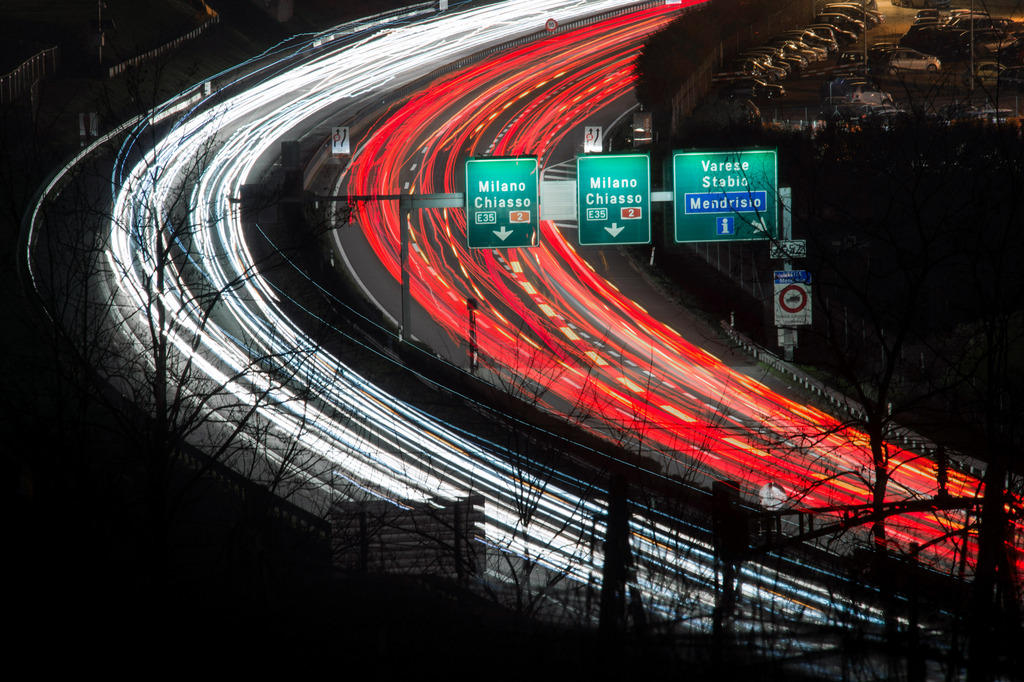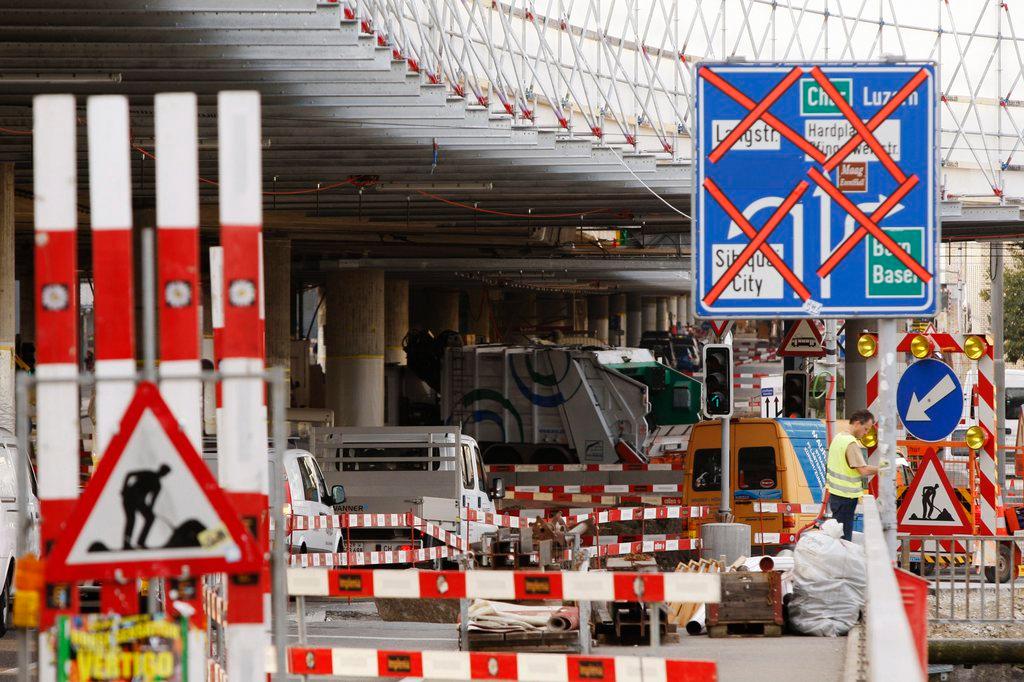Wheels put in motion for road financing

If you have one of world’s densest road networks, how easy is it to maintain? On February 12, Swiss voters will be asked to approve or reject the creation of new fund to guarantee the network’s future.
Traffic on Swiss roads has quintupled since 1960 and rising operating and maintenance costs have come with the growth. Additionally, new noise and safety norms and environmental standards have made maintenance more expensive.
In 2016, the government budgeted CHF1.8 billion ($1.75 billion) for the completion, maintenance and expansion of motorways alone. Among the many costs to upgrade the network are the laying of low-noise asphalt and environmentally friendly drainage systems.
The income from an oil tax and a surcharge on fossil fuels as well as the sale of motorway permits that currently finances road works is considered insufficient to keep up with the growing costs. Neither the tax nor the surcharge has been increased for decades.
Deficit
The government argues that if nothing is done to change the situation, there will be an annual shortfall of approximately CHF1.3 billion by 2019 at the latest.
That’s why it wants voters to approve a new kitty – the fund for financing of motorway and agglomeration traffic – where money from different sources will be funnelled: the existing surcharge on fossil fuel and sale of motorway stickers, 10% of the oil tax, revenue from a vehicle import tax and a levy on electric vehicles – the latter to be introduced from 2020.
The government says this will add up to about CHF3 billion annually – an increase of CHF650 million – that will go towards the new fund.
The proposal has a majority of support in parliament, but since creating a new fund requires a change to the constitution, it must be approved by voters.
Fewer bottlenecks
Transport Minister Doris Leuthard is spearheading the pro campaign, saying the fund will make it possible to reduce bottlenecks and ensure the country is able to maintain an efficient road network in future.
Walter Wobmann of the conservative right Swiss People’s Party argued in parliament that the additional money would come directly from the pockets of car drivers, while the centre-right Christian Democrat, Viola Amherd, said the fund would guarantee good road links with peripheral regions.
“Good transport connections promote national cohesion,” Amherd said.
The country’s biggest automobile association, TCS, estimates the annual cost of traffic jams to the economy at CHF2 billion.
Loser – public transport?
Opposed are some members of the leftwing Social Democratic Party and Greens. Evi Allemann of the Social Democrats and president of the Transport and Environment Association, said the additional money would go to road financing at the cost of public transport.
Indeed, if the fund is approved, 60% instead of the current 50% of the oil tax will go to road works, and the vehicle import tax will no longer go into the general public purse.
Green Party president Regula Rytz accused the conservative majority in parliament for not having learned its lesson from a vote last June. That’s when citizens shot down an initiative that, if approved, would have seen all income from the oil tax going for the upkeep of the road network.
“We’ve agreed to a very generous model that will lead to an expansion of the road network at a time when every penny counts,” Rytz said.
CHF3 billion annually will go into the new fund. The money will come from the following sources:
Fossil fuel surcharge: CHF1.9 billion
Vehicle import tax: CHF400 million
Income from motorway permits: CHF320 million
10% from the oil tax: CHF250 million
Levy on electric vehicles (from 2020): CHF90 million
Contributions from cantons: CHF60 million
Adapted from German by Dale Bechtel

In compliance with the JTI standards
More: SWI swissinfo.ch certified by the Journalism Trust Initiative



You can find an overview of ongoing debates with our journalists here. Please join us!
If you want to start a conversation about a topic raised in this article or want to report factual errors, email us at english@swissinfo.ch.